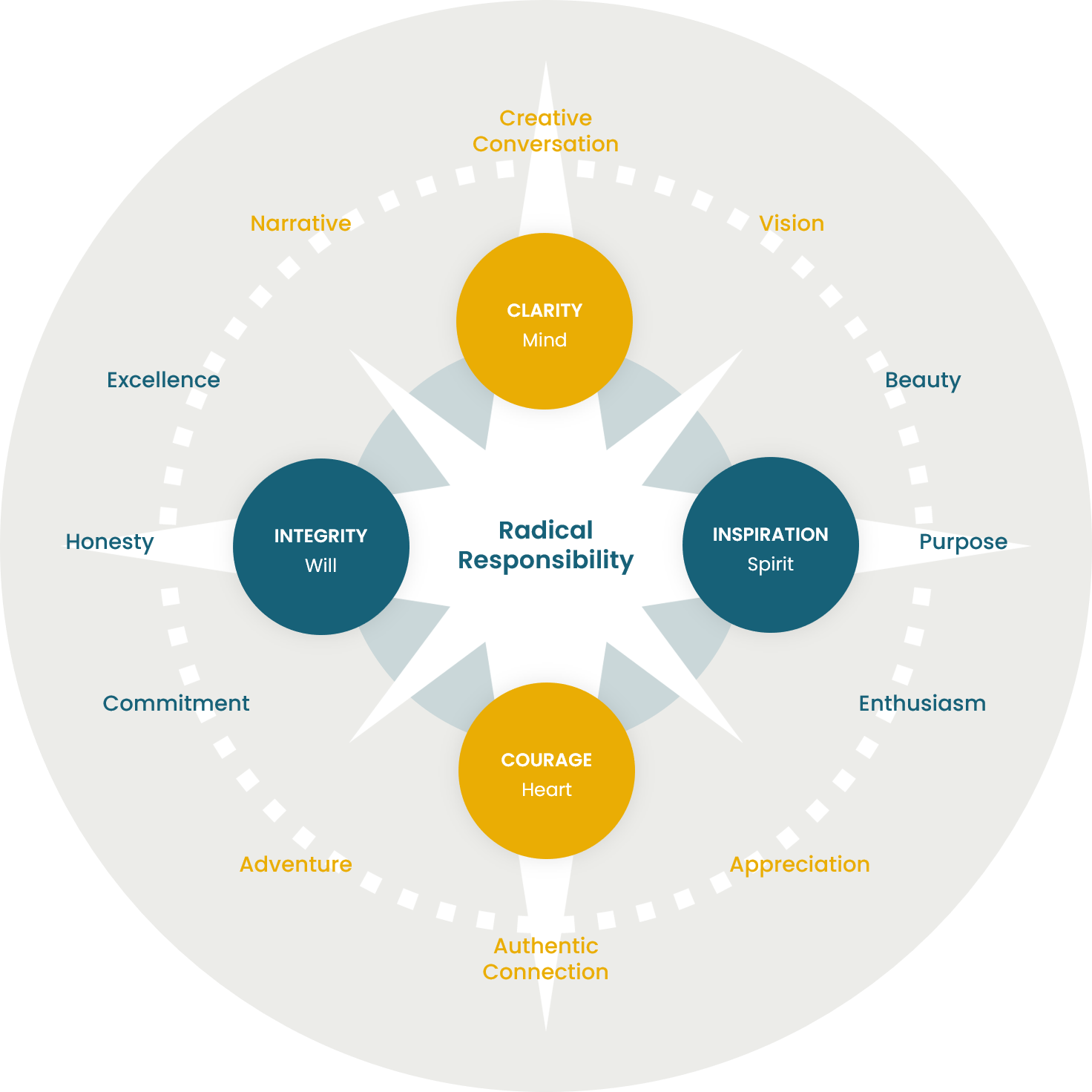The Creative Force of Honesty
Honesty is a huge creative force in our lives.
The choices we make around “telling the truth” (to both self and other) powerfully influence the decisions we make, the directions we move in, the depths of intimacy we experience, and the impact we have as leaders.
Most people I know and work with hold honesty as a very high value. And yet, if we’re really honest, we have a more complex relationship than we think with telling the truth. Why is that? Why do we sometimes not tell the truth, or the whole truth?
Some possibilities…
We think our honesty might create conflict or discomfort that we’d rather avoid.
We think facing the truth will mean we have to change something we don’t want to change, or take an action we’d rather not take.
We think being honest will hurt someone unnecessarily.
We think being truthful might keep us from getting what we want, or think we want—like love, approval, a promotion or raise, or the business decision we think is best.
These are valid concerns—flagging a very common internal dilemma between wanting to control outcomes, and being willing to let life take its course in response to what is true for you—in other words, to “let the chips fall as they may.” This willingness is not a small thing. It can have seismic impact—like divorce, job change, and family rifts—but also may result in exciting new adventures, amazing relationships, and deeply fulfilling career moves.
The question isn’t really whether you’re honest or not with yourself and others. It’s more about how consciously choiceful your relationship with honesty is. How aware you are of what being truthful—or less than truthful—is creating in your life, and what choices you make with that awareness.
So here are a few ways of relating to honesty as the creative force it is:
Listen to your heart.
It holds a space of deeper knowing. Our minds are very good at rationalizing, but our hearts rarely lie. The question is whether we’re willing and able to listen to what our hearts know, express that, and act on it.
Make real agreements.
Sometimes we’re less than honest by agreeing to things that we don’t actually want to deliver or can’t actually deliver. And then, human as it is, we can fall into making excuses. On the other hand, keeping ourselves honest makes our agreements more real and more reliable.
Be responsible for impact.
There’s a bit of a paradox, or “both/and,” here. You are responsible for considering the impact of your honesty, and bringing empathy, compassion and tact with it. AND - others are responsible for their own lives, emotions, reactions, and choices.
Ask questions.
Of self and others—about what we honestly think, feel, and believe. Of course, you may not want to hear the answers, but that in itself will tell you something.
So the question of honesty is not simple, but it is profound in its implications and impact. More than we’re aware, our relationship to honesty is creating what we’re experiencing in our lives, and how others are experiencing us as leaders.
Questions to ponder, and if you have a journaling practice, to write about…
What difference would it make in your life if you were more conscious and intentional about your relationship with honesty?
What are you not being completely honest about in your life right now? Why? Is there anything you want to change about that?
More in the Power Pathways Series…
The Creative Force of Honesty is the 7th post in a series of 13 posts exploring 12 Power Pathways at the heart of highly inspiring and effective leadership.
Termed “Power Pathways” because they are avenues for expressing our power to be the creators and authors of our lives. I started the series off with an invitation to practice the creative power of radical responsibility (the essence of leadership) through these interrelated pathways. Read the whole series here →
Here’s the full wheel, connected conceptually and practically to radical responsibility and the four cardinal disciplines of conscious leadership – inspiration, integrity, courage, and clarity.


